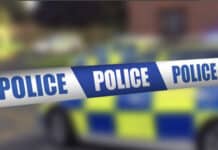What would you do if you needed to call the police, but were trapped in a situation in which speaking or making any noise would be dangerous?
It’s a terrifying thought, and I genuinely hope nobody reading this ever finds themselves in that scenario.
Thankfully, the Silent Solutions procedure was put in place to help people who need help but are physically incapable of making any sound, or who cannot do so because they are hiding from an attacker.
But, although it’s been around for nearly two decades, many people still don’t know about it.
There are several myths around the 999 service, one of which is that if you call the emergency number and don’t speak, the police will automatically track your call and come out to you.
This isn’t the case.
Millions of 999 calls are made every year, and although the vast majority are genuine emergencies, many are made accidentally – either by children playing or by people misdialling.
We’ve all made those unfortunate ‘pocket calls’ at some time, and as you can call 999 from a locked phone, a lot of these now go through to the emergency number. If the police attended every single mistaken call, they wouldn’t have the resources needed to deal with genuine emergencies.
So, if you call 999 and don’t speak, the operator will ask you to make a noise, such as a cough, to confirm you need help.
If you’re not able to make a noise, or it would be dangerous to do so, simply dial 55.
The operator will then immediately connect you to a police call handler who will be aware that the caller requires urgent help.
If no response is given, the operator will end the call.
Silent Solutions was established in 2001 and can be effective if we all know and understand how it works, but many members of the public still are not aware of it.
In a small number of very sad cases, this has had tragic consequences.
Everyone knows they should dial 999 if there’s an emergency. Those three digits are drilled into us from childhood. Maybe knowing another pair of digits – five and five – is almost as significant.
In the worst-case scenario, those two numbers could save lives.












